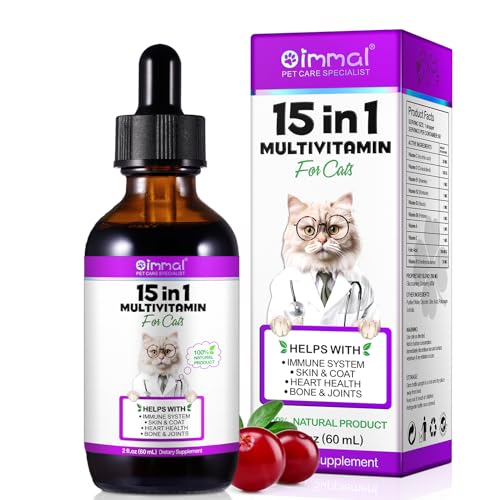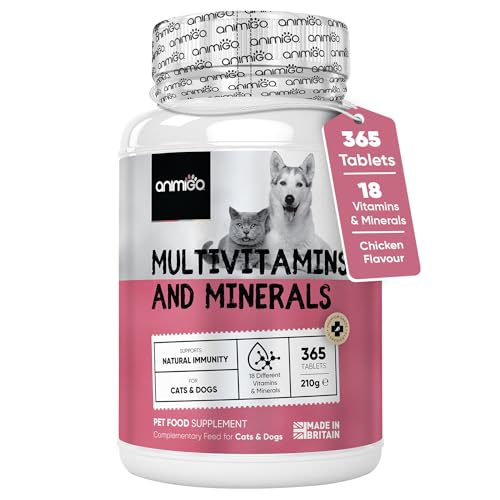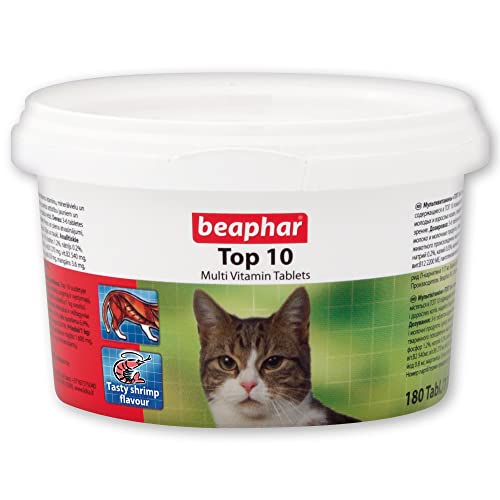Understanding the Importance of Vitamins for Cats
Why Vitamins Matter for Cats
Just like humans, our feline friends require a variety of vitamins to maintain their health. These essential nutrients play a critical role in supporting various bodily functions, including growth, reproduction, and overall wellness. Deficiencies in certain vitamins can lead to health issues that may affect your cat’s energy levels, immune system, and even the condition of their fur.
The Role of Vitamins in Cat Health
Vitamins help in multiple ways; they aid in metabolism, assist in enzyme production, and are vital for the development and maintenance of bones and tissues. For instance, Vitamin A is essential for vision, while B vitamins contribute to energy levels and proper nervous system function. Meanwhile, Vitamin D helps regulate calcium and phosphorus levels, which are important for bone health.
Essential Vitamins Every Cat Needs
Vitamin A
Vitamin A is crucial for vision, immune function, and maintaining healthy skin and coat. Cats cannot convert beta-carotene from plant sources to Vitamin A effectively, so they need it from animal sources such as liver.
B Vitamins
B vitamins, including B1 (Thiamine), B2 (Riboflavin), B3 (Niacin), B6 (Pyridoxine), B12 (Cobalamin), and folic acid, are important for energy production and metabolism. These vitamins help convert food into energy and support the proper functioning of the nervous system.
Vitamin E
Vitamin E is a powerful antioxidant that helps protect cells from damage. It also plays a key role in immune function and skin health, making it vital for your cat’s overall well-being.
Vitamin D
Though cats primarily obtain Vitamin D from their diet, it supports calcium and phosphorus balance, crucial for strong bones and teeth. It is found in fatty fish and certain liver products.
Vitamin K
Vitamin K is essential for blood clotting and bone metabolism. While cats typically produce sufficient Vitamin K through their gut bacteria, its presence in their diet is still important.
Choosing the Right Vitamin Supplements for Your Cat
Understanding Your Cat’s Needs
Before selecting a vitamin supplement for your cat, it’s important to consider their age, health status, and diet. For instance, kittens may need different supplementation compared to older cats or those with specific health conditions.
Consulting with Your Vet
Always consult your veterinarian before starting any new supplement. They can recommend the best type of vitamin based on your cat’s individual needs and dietary gaps. This guidance is crucial for ensuring that your cat gets the right nutrients without excessive amounts that could lead to toxicity.
Choosing Trusted Brands
When choosing supplements, look for reputable brands that are known for their quality. Aside from checking the ingredient list, ensure the product has clear dosages tailored to cats. Reading reviews and seeking recommendations can help narrow down options that have worked well for other cat owners.
How to Incorporate Vitamins into Your Cat’s Diet
Mixing Supplements with Food
One of the easiest ways to introduce vitamins to your cat’s diet is by mixing powdered supplements into their regular food. Cats are more likely to accept them when disguised within their favourite meals. Start with a small amount to see how your cat reacts before gradually increasing the dosage as recommended.
Using Treats and Snacks
Another effective method is to use vitamin-enriched treats. Many cat treats are formulated with added vitamins and minerals. Choosing these can not only provide health benefits but also serve as a tasty reward during training or as an occasional snack.
Homemade Cat Food Options
If you’re considering homemade meals for your cat, ensure that they’re balanced and include the necessary vitamins. There are many recipes available that cater to feline nutritional needs, which can offer a great way to enhance your cat’s vitamin intake naturally.
Signs Your Cat Might Need More Vitamins
Observing Changes in Energy Levels
If your cat seems lethargic, loses interest in playtime, or appears less active than usual, it could indicate a need for more vitamins. A lack of energy can result from nutritional deficiencies.
Monitoring Coat Health
A shiny, healthy coat is often a sign of good nutrition. If you notice your cat’s fur becoming dull or thinning, it may suggest a deficiency in essential vitamins. Omega fatty acids, Vitamin E, and A in particular are vital for skin and coat health.
Appetite and Digestive Changes
Changes in appetite, difficulty maintaining weight, or digestive issues can also point to nutritional gaps. If your cat is eating less than normal or has noticeable weight changes without explanation, it’s time to assess their vitamin intake.






















